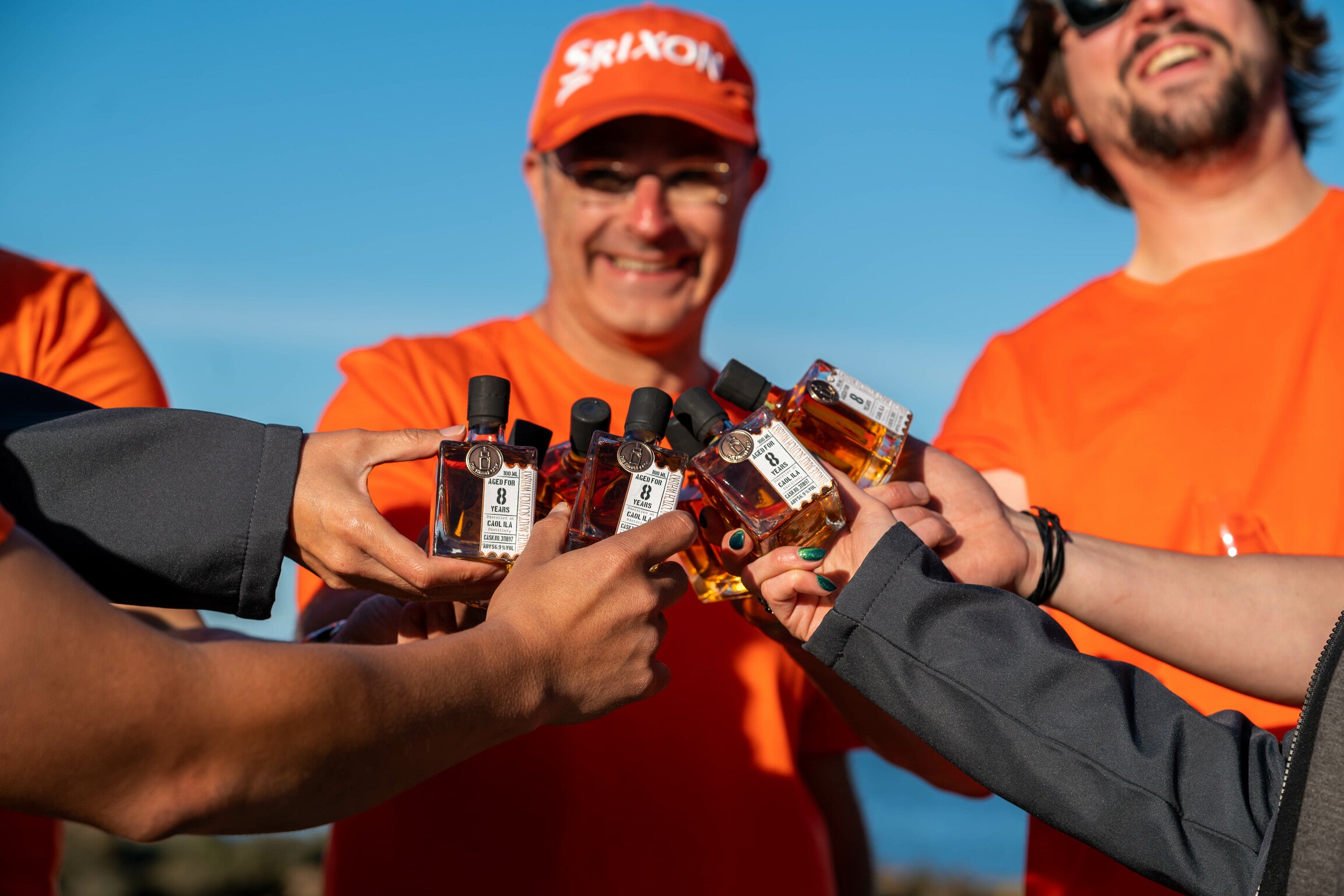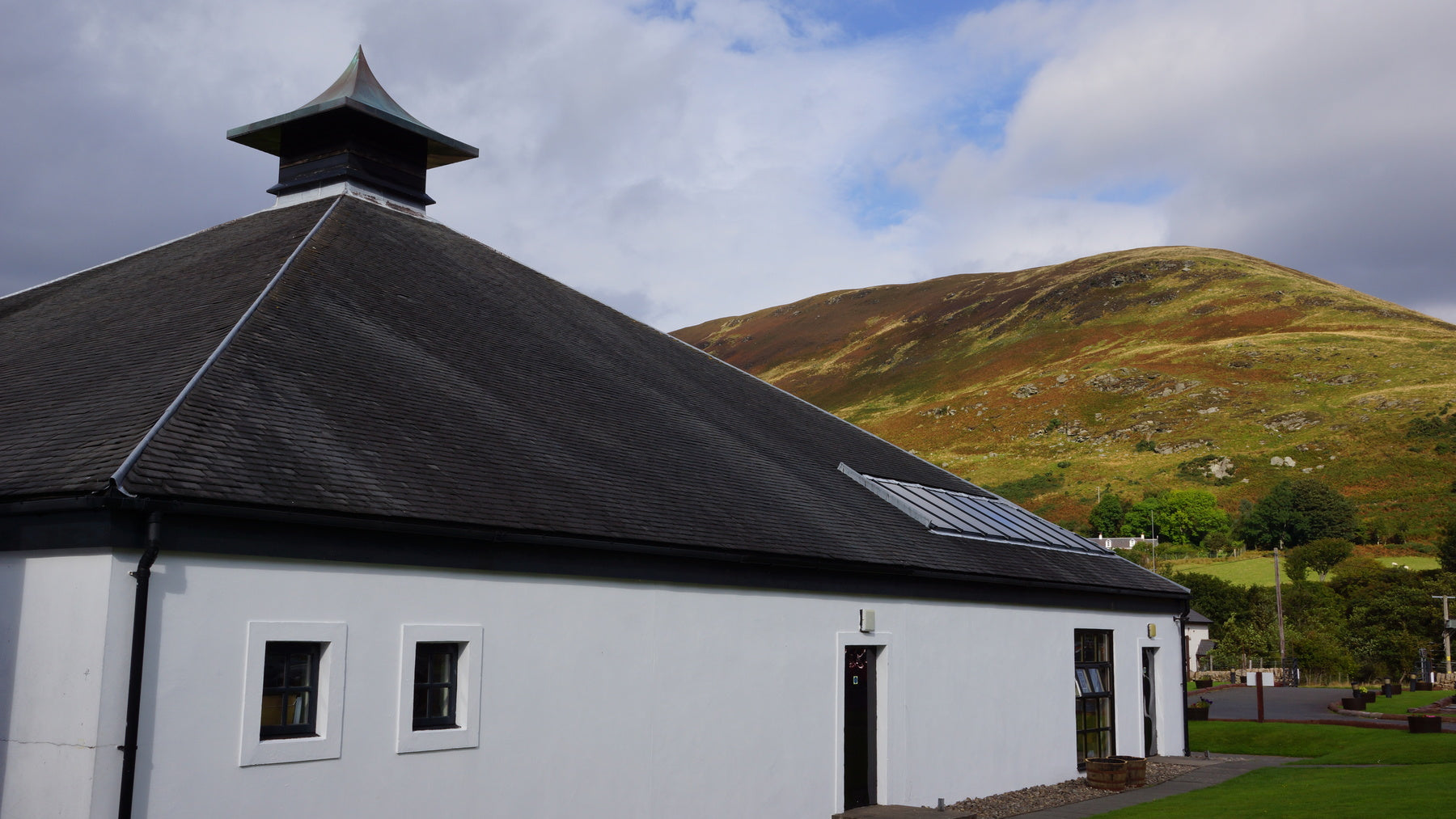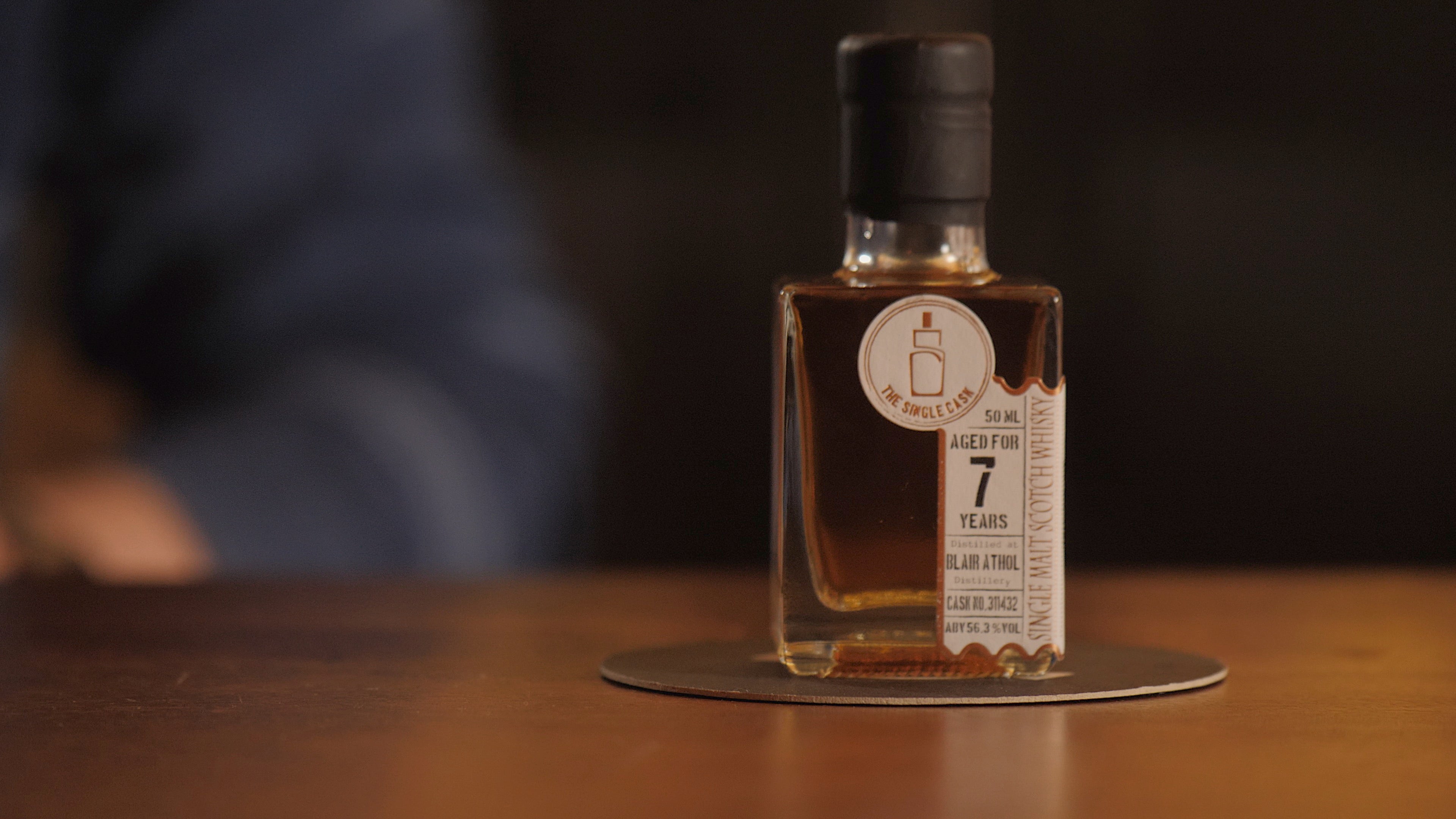
Why Cask Strength Whisky is the Perfect Father's Day Gift
Cask strength whisky goes straight from the barrel and into the bottle. Distilleries often add water before they bottle their single malt whisky. We believe you, and only you should be the one who decides how much water do you want in your glass. One drop, two drops, perhaps nothing? Cask strength whisky hasn’t had any water added before bottling so you can explore the whisky and the characteristic of a distillery not like in case of other whiskies. In this blog, I will tell you about why cask strength whisky is the perfect Father’s Day gift.
Why Drink Cask Strength Whisky?
When we’re talking about cask strength whisky, we’re talking about the Alcohol By Volume (ABV). It’s called ‘proof’ in the United States. The proof is double the ABV, so if you see a bourbon labelled as 100 Proof, then it is 50% ABV.
Whisky’s ABV changes while it’s maturing in the cask. It comes off the still at around 70% alcohol. Distilleries might add some water to decrease the ABV before they put it in the barrel. The ABV for scotch whisky will drop while it’s in the cask. You’ll often hear this called the “Angels Share”. The angels take some of the alcohol out of the barrel while it’s maturing—those greedy buggers.
Each single cask of whisky will mature differently. This can cause a problem for creating consistent whiskies. Let’s say you’re Glenfiddich. You have hundreds of barrels that you’ll use to create a batch of Glenfiddich 12-year-old. Each cask could have a different ABV, so you add water to make them all consistent. You have to do this so every time someone buys a Glenfiddich 12-year-old, it will taste the same. It wouldn’t work if some bottles were 41.1% and some were 43.5%. With a whisky like the standard Glenfiddich, you want consistency. Adding water to whisky before bottling is standard practice in the whisky industry, so customers always get what they expect.
Distilleries haven’t added any water to cask strength whisky. Buying cask strength whisky lets the drinker decide how they want their whisky to taste. It gives them control.
The flavours are concentrated in cask strength whisky because they are undiluted. Drinkers can add water at their own pace to find their preferred ABV. And some people argue cask strength whiskies are a better bargain. Because drinkers add water themselves, their bottles go further.
Think about it. You have two whiskies that both cost £50. One is 40% ABV, and one is 50% ABV. With the 40% ABV whisky, you’re spending an extra £5 on water!
What ABV Says About Whisky
Knowing the ABV tells you how much alcohol is in the whisky. Obviously. But it also hints at how much alcohol prickle you’ll have when you drink it. It also suggests how concentrated the flavours are. The flavour in a high ABV whisky will be more concentrated than a lower ABV whisky.
Knowing the ABV also tells you whether the whisky has been chill-filtered. Whisky that is lower than 46% ABV might have been chill-filtered. Chill-filtration is a process where distilleries remove ‘impurities’ that make a whisky go cloudy when you add water or ice to it. The distilleries chill-filter for cosmetic reasons. There isn’t any reason to do it, other than that some people don’t like the way the whisky looks when it’s cloudy. Some people argue that chill-filtering changes the whisky’s character.
Whiskies above 46% ABV, as most cask strength whiskies are, will never be chill-filtered. That’s because whisky with higher ABVs doesn’t get cloudy when you add water.
How to Drink Cask Strength Whisky
Drinking cask strength whisky gives you the chance to try it unaltered, as it was in the barrel. Additionally, it lets you decide how you want the whisky to taste. If you like your whisky to have an alcohol prickle, don’t add much water. If you’re going to explore some of the subtle nuances, add a bit more water to your dram.
Add your water a little at a time. This helps you control the flavour, so it gets to the exact point you like it. If you add too much water, it might dilute your whisky too much. And no one wants a soggy whisky.
The Water Matters
You don’t want to use any old water.
All our whiskies are cask strength. We find that the best waters to open up and explore the flavours are local spring water. When I say local, I mean local to the distilleries. We use Uisge Source water, which matches the water used to make the whisky in the first place. To find out more about how water makes your whisky, check out our blog.
Uisge Source comes from natural springs near the distilleries. They have three different types, which align to the three major scotch producing regions: Speyside, Islay and Highlands. They are fantastic ways to make sure you get the most from cask strength whiskies.
The Perfect Cask Strength Gift
Of course, if you want to give a full bottle of unique whisky, we’ve got you covered. We have a vast range of cask strength whiskies to choose from. You can find our selection here. Our unique bottles and phenomenal single malt whiskies will make any whisky lover smile. You can’t go wrong.Our Mini Bottles are a fantastic gift set for whisky lovers. You can choose from our 3 x 50ml bottles each coming from a different whisky region showcasing how a different location of a distillerc can affect your whisky. So, it includes everything you need to have for the perfect cask strength whisky experience.



Leave a comment
This site is protected by reCAPTCHA and the Google Privacy Policy and Terms of Service apply.